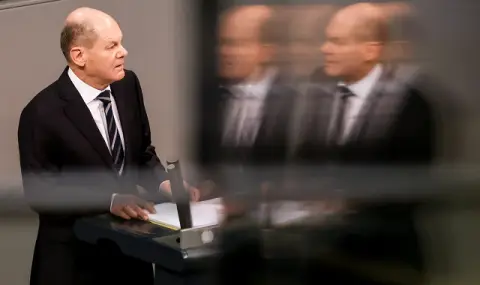Social Democratic Chancellor Olaf Scholz lost the vote of confidence in the Bundestag. How did it get here? And what are the predictions for the early elections, which are on February 23, 2025?
Federal Chancellor Olaf Scholz lost the vote of confidence in the Bundestag - in line with expectations.
Who voted against Scholz?
207 deputies voted for Olaf Scholz, 394 voted against the chancellor, and 116 abstained. Details of who exactly voted for him and who did not have yet been published.
The 196 members of the conservative CDU/CSU bloc had announced that they would not vote for the Social Democrat Scholz. The Free Democratic Party (FDP), which left the government coalition in November, had also announced the same, as had the Left Party and the ten MPs from Sarah Wagenknecht's populist Union (SV). From the Alternative for Germany, only one MP had announced that he would vote in support of Olaf Scholz, and the rest - against.
The party leadership of the Greens (117 MPs), who are the coalition partner of the Social Democrats, had called on their MPs not to express confidence in Scholz and to abstain from voting.
What's next?
The Chancellor must now propose to Federal President Frank-Walter Steinmeier to dissolve parliament. If he determines that there is no possibility of forming a stable government, Steinmeier can dissolve the Bundestag immediately after the vote. Theoretically, the German president has 21 days to take this step. Once this happens, early parliamentary elections must be held within 60 days. They are currently scheduled to take place on February 23, 2025.
These early elections will be the first under the new electoral law, which stipulates that the seats in the future parliament will be limited to 630.
This situation has come about after the ruling coalition consisting of the Social Democrats, Liberals and Greens collapsed. On November 6, Chancellor Olaf Scholz dismissed Finance Minister Christian Lindner, the chairman of the FDP, and then almost all ministers from his party announced that they would voluntarily resign.
In the history of the Federal Republic of Germany, chancellors have asked for a vote of confidence from the Bundestag five times. The last time this happened was in 2005 under Gerhard Schröder.
What are the election predictions?
Sociological surveys predict a shift in the balance of political forces in parliament after the vote on February 23, 2025. According to a December 6 poll commissioned by German public broadcaster ZDF, the conservatives will come in first with 33 percent, and the Alternative for Germany is expected to come in second with 17 percent. The forecasts for the other political forces look like this: third place for the Social Democrats with 15 percent, fourth - for the Greens with 14, and fifth - for Sarah Wagenknecht's Union with five percent. According to the survey, the liberals and the left will not enter the Bundestag - they are expected to receive four and three percent, respectively.
